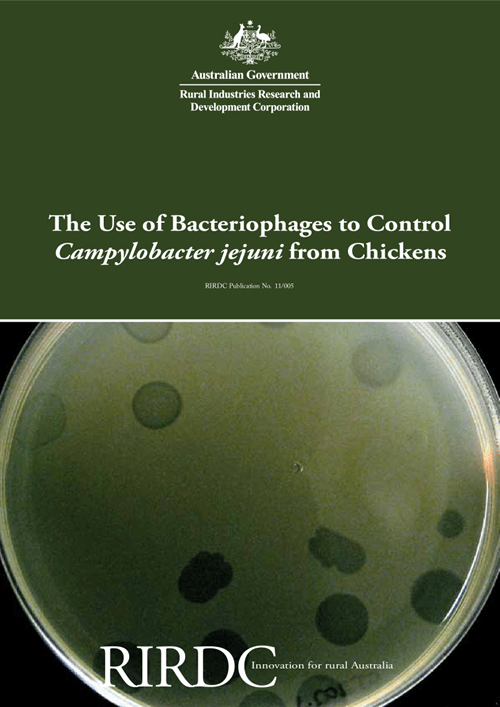Worldwide, over 90 percent of reported bacterial food-borne illness in humans can be attributed to either Campylobacter or Salmonella species. Of these two organisms, Campylobacter is the most common bacterial cause of diarrhoeal disease in humans.
One proposed adjunctive control measure for Campylobacter is the use of bacteriophages. Bacteriophages are viruses that are able to infect and kill bacterial cells and they will only multiply when susceptible bacteria are present. The emergence of antibiotic resistant bacteria has, in recent times, renewed Western research interest in the possibilities of using bacteriophages to control bacteria, such as Campylobacter. This RIRDC study investigated Campylobacter jejuni and its associated wild type bacteriophages.





